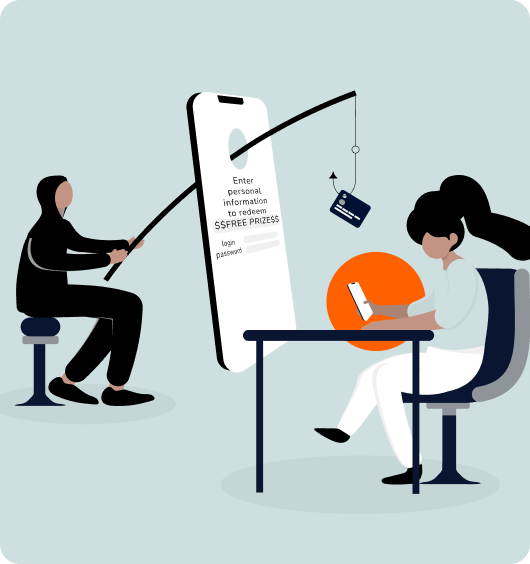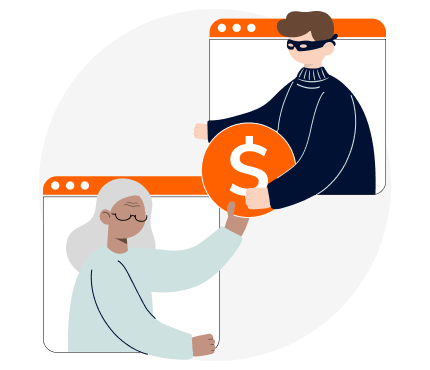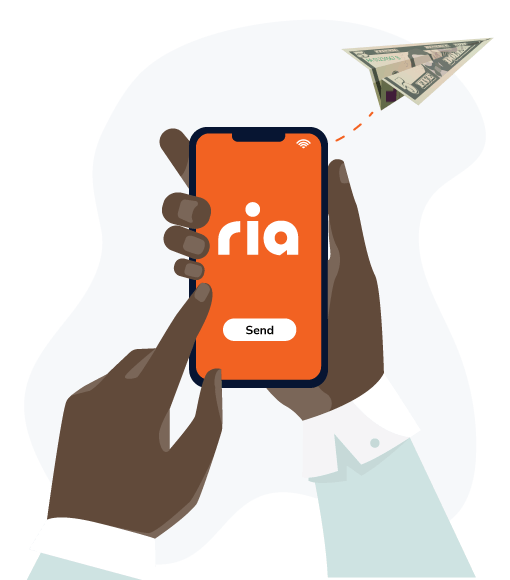Fraud Awareness
Anyone can fall victim to fraud, but there are ways to make sure it doesn't happen to you. We've listed several common fraud scenarios below so you can stay aware of common industry scams.

Common Fraud Scenarios
The first step to avoiding fraud is knowing how to identify them.

You’ve met someone beautiful and smart. You've never met them in person, but you've been talking to them for months. Suddenly, they have an emergency and need money. But, they're not who you thought. Learn more
You won the lottery! Although you can’t remember playing, the prize is big. There's one catch: the sender needs funds from you in order to cash out your prize. What's a small amount when you're about to get millions? Learn more
Your grandchild is traveling and sends you an email saying she needs money for an emergency. You don't remember her telling you she was traveling, but what's a hundred dollars when it comes to their safety? Learn more

You found a great deal on a car on the internet! The seller tells you to send a down payment or service fees through a money transfer. Do not send these via a money transfer. You might not get your dream car or your money back.
You’ve found a great price on an apartment rental online and want to sign the lease. You’ve been asked to pay for the first month with a money transfer, but be wary, as this may be a scam. Do not wire money for internet purchases.
You start a new job as a mystery shopper, but when you deposit the check per their instructions, the amount is more than it should be and you need to send money back. Then, you learn that the original check was counterfeit.

You get mailed a money order as an advanced payment for merchandise you’re selling online, but the amount is above price. The scammer tells you to deposit it and then wire the amount they’ve “overpaid” back to them.
In the newspaper, you see an ad for a new refrigerator for a price that seems too good to be true. You purchase it, but now they’re asking you to transfer the money to them. You might never get the item and you’ll lose your money.
There was a natural disaster, and you want to help by donating money. Sadly, events like tornadoes or hurricanes often result in scammers staging "charitable" organizations that prey on well-intentioned people. Learn more

Nearly a third of all telemarketing fraud victims are age 60 or older. Be careful about sending money to a stranger in exchange for the promise of things like home improvement, estate planning, and more. Learn more
Are you sending money because you were "guaranteed" a credit or loan? If so, be cautious. It is highly unlikely that you would need to send money in order to receive a true credit or loan.
Money transfer scams take on many shapes and forms. What's worse, fraudsters are continuously learning new tricks and techniques. That's why it's important to stay one step ahead of tricky scammers. Learn more

This occurs when someone assumes your identity to perform a criminal act. They can get your information a number of ways, including stealing your wallet, going through your trash, or compromising your bank information.
You get a call from an unknown caller — you won a free cruise! All you need to do is pay for postage and handling to receive the "formal" offer. They’ve now conned you into giving them your financial information. Learn more
Help, I got scammed! Who can help?
1.
Call the police
2.
Contact Ria's fraud department
3.
Federal trade commission - US only
4.
Internet crime complaint center (ICCC)

Additional Resources
Scammers attack when you're least expecting it and often prey on well-intentioned people. Learn how to protect yourself and your loved ones from unexpected fraud. Here is a list of several resources that provide helpful information to protect you and your family.
- Federal Trade Commission
- USA.gov
- National Consumers League (U.S.)
- Canadian Anti-Fraud Centre
- Scam Watch - Money Matters
- The Scams Awareness Network (SAN)

Have more questions about money transfers?
Visit our online help center or contact our customer service. We're happy to help you get started.
The information on or through this site is provided for general informational purposes only and should not be relied on as a substitute for specific advice about laws, regulations, taxes, finances, immigration or travel. For specific advice, contact a licensed attorney, financial advisor or other professional.
We disclaim all liability and responsibility arising from any reliance placed on this site. We do not warrant the accuracy or usefulness of this information. This site may contain links to other sites and information provided by third parties for your convenience. We do not endorse nor make any guarantees with respect to these sites, their accessibility, the information they contain or the way they treat any information you provide to them.
Support
Privacy policyTerms and conditionsFraud awarenessHelp centerSitemapAccessibility statementConsumer rightsFollow us
Ria Lithuania UAB. © 2024 Dandelion Payments, Inc. All rights reserved.

 Argentina
Argentina Australia
Australia Belgique
Belgique Canada
Canada Česko
Česko Chile
Chile Colombia
Colombia Deutschland
Deutschland España
España France
France India
India Ireland
Ireland Italia
Italia Lietuva
Lietuva Luxembourg
Luxembourg Magyarország
Magyarország Malaysia
Malaysia México
México Nederland
Nederland New Zealand
New Zealand Norge
Norge Österreich
Österreich Philippines
Philippines Polska
Polska Portugal
Portugal România
România Schweiz
Schweiz Sénégal
Sénégal Singapore
Singapore Suomi
Suomi Sverige
Sverige United Kingdom
United Kingdom United States
United States Ελλάδα
Ελλάδα